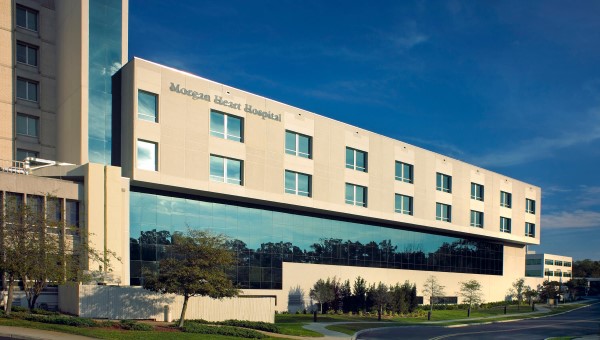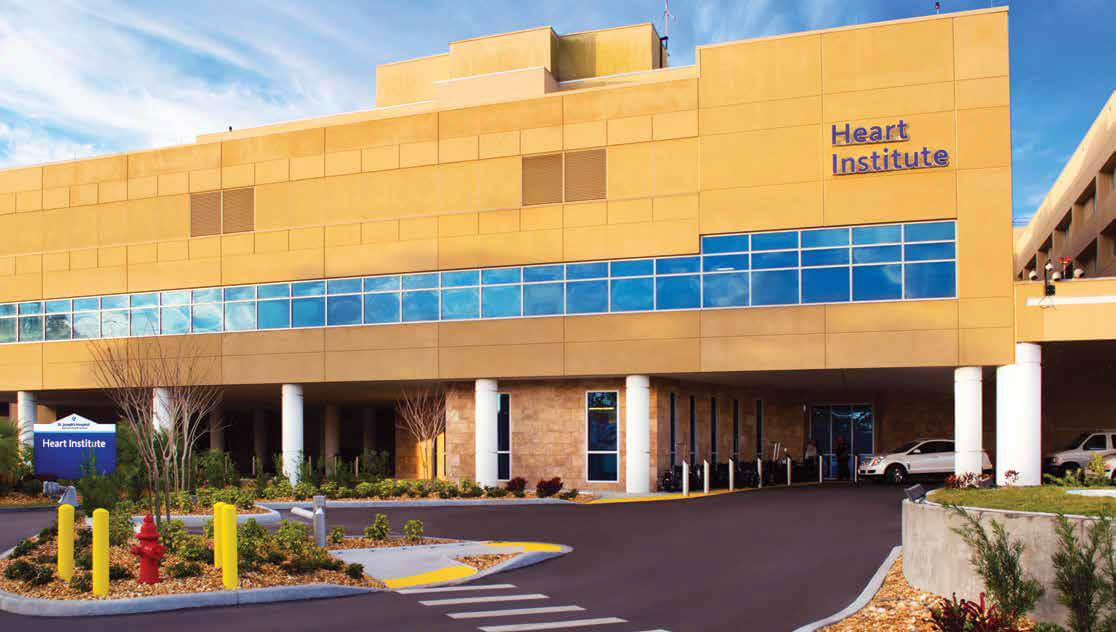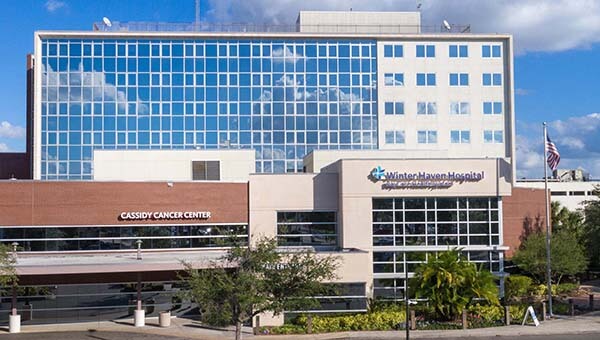About Structural Heart and Valve Disease
Structural heart and valve disease affects the valves that regulate blood flow within the heart. Some structural heart and valve conditions are present from birth (congenital), and others are the result of heart diseases or illnesses that occur throughout a person’s lifetime. Some structural heart diseases BayCare specializes in are:
-
Aortic Valve Stenosis
Also called aortic valve stenosis, it’s a common problem where the aortic valve of the heart can become thickened, meaning that it’s too narrow and doesn't open very well. This causes blood flow from the heart into the rest of the body to be obstructed, forcing the heart to work overtime to pump sufficient blood.
-
Aortic or Mitral Valve Regurgitation
Aortic or mitral valve regurgitation occurs when a heart valve doesn’t close tightly, allowing blood to leak or flow backwards (or in reverse) of the proper direction.
-
Pulmonary Valve Stenosis
Pulmonary valve stenosis is a heart condition affecting the pulmonary heart valve, which controls the flow of blood out of the heart to the lungs. In this condition, the pulmonary valve is thickened or doesn’t open fully, usually because of a congenital deformity that develops before birth. -
Tricuspid Valve Disease
Tricuspid valve disease refers to several conditions that affect the tricuspid heart valve located between the two right chambers of the heart, the right atrium (upper chamber) and the right ventricle. Tricuspid regurgitation occurs when the valve doesn’t close tightly, and blood can flow backwards through the valve. Tricuspid stenosis can occur when the valve doesn’t open well limiting the flow of blood through it. Tricuspid atresia is a congenital condition where a solid sheet of tissue blocks the flow of blow through the valve.
-
Atrial Septal Defect ClosureTreatment for atrial septal defect (ASD) depends on the size of the hole, where it’s located on the atrial wall, and if other heart problems are present. For some, ASD closure is performed through a catheter-based procedure using a patch-like implant. Open-heart surgery may be the only option for ASDs in certain locations.
-
Endovascular abdominal aortic aneurysm repair
Endovascular abdominal aortic aneurysm repair (EVAR) is a minimally invasive procedure used to treat aortic aneurysms in the abdominal area. During this procedure, a vascular surgeon uses a catheter to access the abdominal aortic aneurysm and place an expandable stent graft. The graft’s wire frame will be placed tightly so that blood will not enter the aneurysm. -
Patent Foramen Ovale ClosureIf a patent foramen ovale (PFO) needs treatment, closure is typically performed using a catheter to place an implant to seal the flap. Open-heart surgery or surgery through smaller incisions can also be used to stitch the flap closed.
-
Surgical Aortic Valve Repair and Replacement
The aortic valve can be replaced or repaired through traditional open-heart surgery or minimally invasive approaches. Through the traditional surgical approach, surgeons physically repair or replace the valve using either a mechanical valve or another prosthetic valve. -
Surgical Treatment for Thoracic and Abdominal Aortic Disease Including Aneurysms and Dissections
Aortic aneurysms occur when part of the blood vessel weakens and starts to bulge and aortic dissection happens when there is a tear in the wall of the aorta. Both conditions can cause life-threatening bleeding. The type of surgery recommended all depends on the patient’s condition and location of the aneurysm. Most patients have open-heart surgery, but your doctor may determine you are a candidate for less invasive repair such as endovascular aneurysm repair (EVAR). -
Transcatheter Aortic Valve Replacement
Transcatheter Aortic Valve Replacement (TAVR) minimally invasive procedure is used to treat aortic stenosis. TAVR procedure enables the placement of an expandable aortic heart valve into the body through the leg or chest by a catheter-based delivery system. -
Thoracic Endovascular Aortic Repair
Thoracic Endovascular Aortic Repair (TEVAR) is a minimally invasive procedure used to treat aortic aneurysms found in the chest. During this procedure, your cardiovascular or vascular surgeon inserts a catheter into your artery through a small incision in the groin and places a stent inside the aorta to prevent blood from pooling against the weakened area. -
Transcatheter Mitral Valve Repair
Transcatheter Mitral Valve Repair (TEER or transcatheter edge) is a minimally invasive treatment option for people with degenerative mitral valve regurgitation where a catheter is used to implant a clip, called a MitraClip, in the center of the mitral heart valve to restore the proper flow of blood through the heart. -
Transcatheter Mitral Valve Replacement
Transcatheter Mitral Valve Replacement (TMVR) is a minimally invasive treatment option for mitral valve regurgitation in which a new prosthetic valve replaces a person’s own heart valve without open-heart surgery.
-
Tricuspid Valve Repair and ReplacementTricuspid Valve Repair and Replacement is generally recommended whereby a surgeon may reshape the valve or utilize a small balloon to open it for better blood flow. Some valves are unable to be repaired and will need to be replaced with either a mechanical valve or a tissue valve. Tricuspid valve repair and replacements may be done through traditional open-heart surgery or a minimally invasive valve-in-valve procedure.
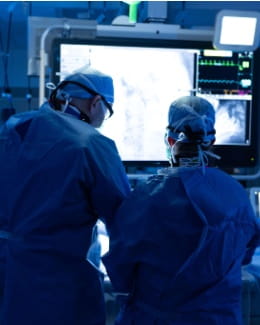
Before
Before structural heart procedures, your cardiovascular surgeon may require pre-op testing. These typically involve lab tests, chest x-rays, echocardiogram, electrocardiogram and cardiac catheterization. Your doctor will schedule your surgery day, and the week prior to surgery, you will receive a phone call with your procedure time.
Procedure Day
On structural heart procedure day, you will check in and may need to fill out your treatment consent forms. Once completed (for most procedures), you will sit in a waiting room before being given a pre-operative room where you will receive your IV and speak with the team, which may include your surgeon, surgical nurses and an anesthesiologist.
After
What occurs after the procedure varies based on which procedure you have. After leaving the operating room, most patients will recover in post-anesthesia care unit (PACU). Some minimally invasive procedures may offer outpatient options (going home same day) while others may require a longer hospital stay. If hospitalization is needed, the medical team will monitor your condition, blood pressure, and manage any pain. You may be encouraged to walk and do breathing exercises.
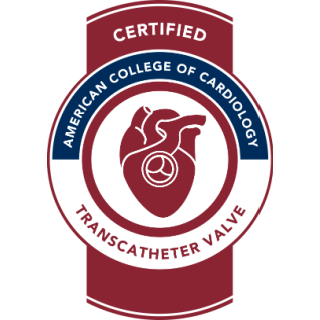
Our structural heart and valve teams at our three flagship facilities work together to share expertise, knowledge and experience, giving every patient across West Central Florida access to the highest quality heart care. Each patient referred to our Structural Heart and Valve programs as a potential candidate is thoroughly evaluated by our multidisciplinary team. The team consists of heart specialists including cardiovascular surgeons, cardiologists, cardiac anesthesiologists and other cardiac care specialists to treat these heart valve disorders. This collaboration across our multidisciplinary teams results in evidence-based approaches that produce superior clinical outcomes for our patients.
BayCare’s Structural Heart and Valve programs hold the Transcatheter Valve Certification from American College of Cardiology (ACC). This certification uses an external review process that pairs with established national clinical databases to monitor patient safety and real-world outcomes for transcatheter valve therapies. Hospitals that achieve Transcatheter Valve Certification use best practices for implementing evidence-based medicine to support patient-centered decision-making and track key performance metrics to better identify opportunities for improvement.


